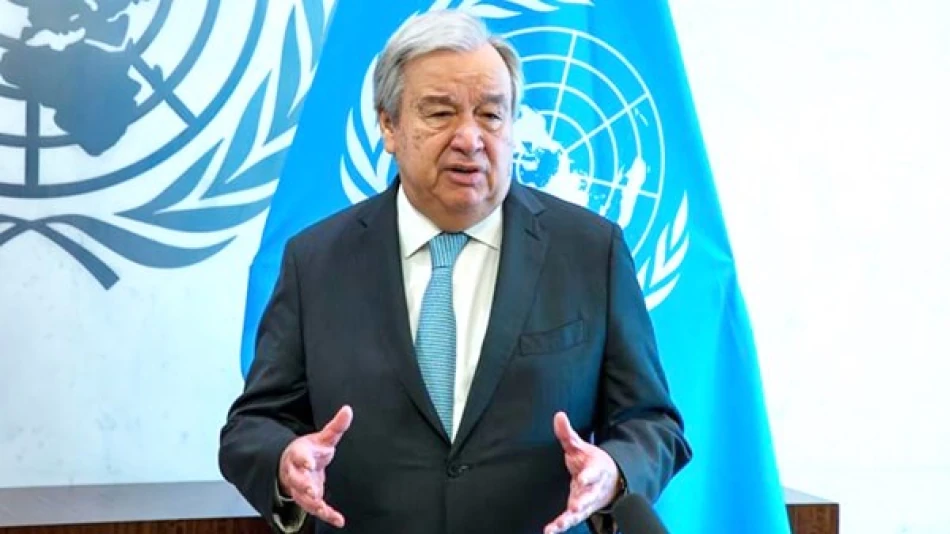
UN Calls for Empowering Girls' Digital Rights Worldwide
UN Chief Demands Digital Rights Revolution for Marginalized Girls Worldwide
UN Secretary-General António Guterres has issued an urgent call for governments and private sector leaders to dramatically strengthen protections for girls in digital spaces, with particular focus on marginalized communities. His comprehensive report to the General Assembly outlines a strategic framework that could reshape how technology companies and policymakers approach gender equality in the digital age, potentially affecting billions of users across global platforms.
The Digital Divide: More Than Just Access
Guterres' report identifies a critical gap that extends far beyond simple internet connectivity. The UN chief emphasized the need to eliminate barriers preventing girls—especially those with disabilities, minorities, and those in remote areas—from accessing technology and developing essential digital skills. This represents a significant shift from previous UN approaches that focused primarily on basic access rather than meaningful participation.
The report advocates for integrating digital literacy directly into educational curricula as a tool to combat gender stereotypes. This recommendation aligns with successful initiatives in countries like Estonia and South Korea, where early digital education has produced more gender-balanced tech sectors compared to nations with later adoption.
Regulatory Pressure on Tech Giants
The UN's call for strict government legislation to protect girls from harmful online content represents a notable escalation in international pressure on technology companies. Guterres specifically demanded that platforms implement robust safety measures and cooperate more extensively with law enforcement agencies to combat digital crimes.
Market Implications for Platform Companies
This regulatory push could significantly impact major social media and technology companies operating globally. Similar regulatory movements in the European Union through the Digital Services Act and in the UK via the Online Safety Bill have already forced platforms to invest billions in content moderation and safety infrastructure. The UN's backing of such measures adds international legitimacy to these regulatory trends.
For investors, this signals a likely increase in compliance costs across the tech sector, but also potential opportunities for companies specializing in safety technology, content moderation tools, and educational technology platforms designed for underserved populations.
Beyond Protection: Technology as Empowerment Tool
The report balances its protective stance with recognition of technology's transformative potential. Guterres highlighted how digital platforms can enhance girls' community participation and expand access to essential services like education and healthcare—particularly relevant in regions where traditional infrastructure remains limited.
This dual approach reflects lessons learned from initiatives in countries like Rwanda and Bangladesh, where mobile technology has successfully expanded educational and financial services to previously excluded populations, with particularly strong outcomes for women and girls.
A Strategic Shift in Digital Rights Discourse
The Secretary-General's emphasis on ensuring that "digital and emerging technologies become tools to expand, not restrict, the rights, opportunities, and well-being of all girls" represents a more assertive UN stance on technology governance. This positioning could influence upcoming international negotiations on digital rights frameworks and provide leverage for developing nations seeking stronger protections in bilateral tech agreements.
The timing of this report coincides with growing global momentum around digital rights legislation, suggesting coordinated international pressure that could reshape how technology companies design products and services for younger users, particularly in emerging markets where growth potential remains highest.
Most Viewed News

 Layla Al Mansoori
Layla Al Mansoori






